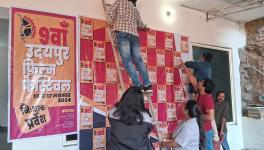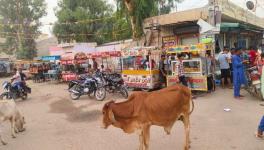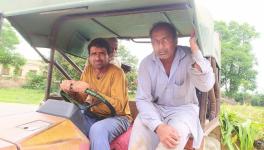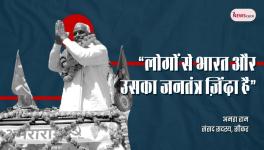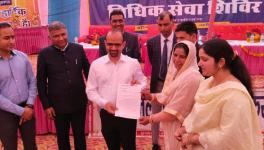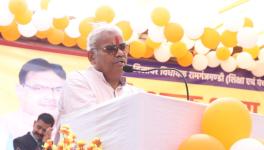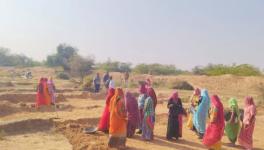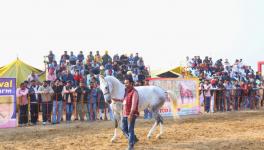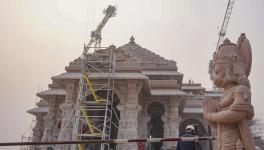COVID-19: Rajasthan’s Bhilwara, and Hints of Community Transmission
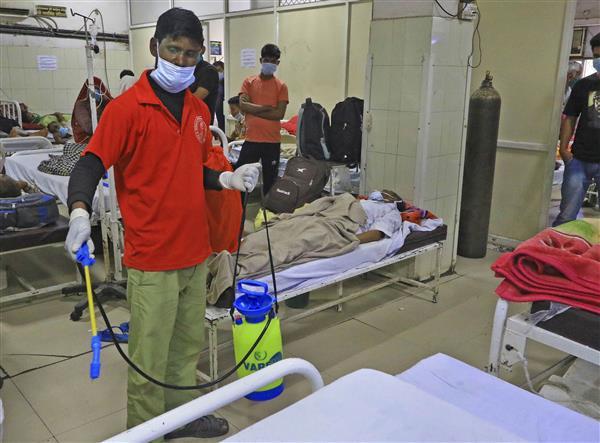
Image Courtesy: PTI
As numbers of those affected by the novel coronavirus continue to surge across India, a tiny district in Rajasthan is assuming significant attention. With a population of approximately 24 lakh, Bhilwara, barely 250 kilometers away from the state’s capital Jaipur, has reported 25 cases and two deaths so far.
Speed and scale show the dangers of community transmission
Bhilwara was declared the epicenter of COVID-19 in Rajasthan soon after six healthcare personnel tested positive last week. Narayan Singh, a 73-year-old kidney patient, who had tested positive for the coronavirus on Wednesday (March 25), reportedly passed away on Thursday in Bhilwara’s Mahatma Gandhi Hospital. However, the state government said since he suffered from kidney failure and a brain haemorrhage, the death could not be attributed to COVID-19. Currently, the city is under mass screening and surveillance, coupled with a strong door-to-door campaign.
While the source of the infection in Bhilwara is unclear, it points to the dangers of a community spread. So far, 59 cases of coronavirus have been reported in Rajasthan, out of which 25 are from Bhilwara alone.
Screening and aggressive testing the only chance
Bhilwara city has reportedly been under a curfew for ten days, with the numbers have raising concerns at the Centre. As part of a screening exercise, over 300 teams conducted health surveys, with thousands asked to quarantine at home. Thirteen lakh people have been screened and many have suggested that a local hospital was the center of the outbreak.
Consequently, 332 teams have surveyed the entire population of the city while another 1,900 teams are screening most of the 2.4 million rural population. Another exercise is on to focus on 18,000 of those who were found having flu-like symptoms and villagers. The government has put 6,500 suspects in home quranatine.
The Hindu reported that 1,948 teams of health workers surveyed 4.22 lakh families in both urban and rural areas, examining 21.64 lakh persons in the process. Hotels, resorts, hostels and dharamshalas have been arranged for to meet the requirement for 1,500 quarantine beds and 14,400 normal beds in the case of an emergency.
Speaking to NewsClick, Chhaya Pachauli of the Jan Swasthya Abhiyaan said: “The measures taken are quite stringent – borders are sealed, there is a curfew and the source of the virus is unknown. Hotels and private hospitals have been taken over but, surveillance is the key to detect the virus. The government’s response might be swift, what is really problematic is that the majority of cases are from the medical staff.” She said that Bhilwara is an example of how the response should have been like much earlier, “as we have been requesting; the scale of surveillance is not up to the mark.”
The District Collector has reportedly taken over five private hospitals in order to set up isolation facilities with the state government providing for electricity, water and other necessities.
Get the latest reports & analysis with people's perspective on Protests, movements & deep analytical videos, discussions of the current affairs in your Telegram app. Subscribe to NewsClick's Telegram channel & get Real-Time updates on stories, as they get published on our website.









